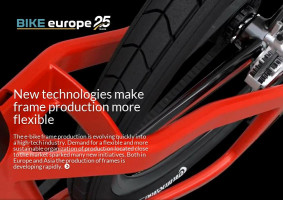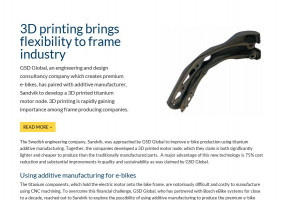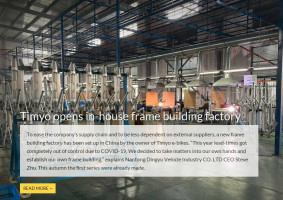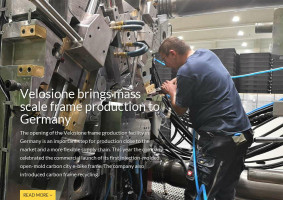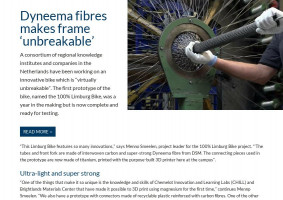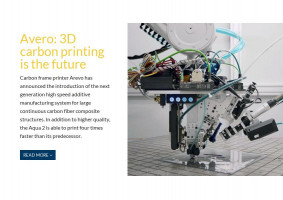3D printing brings flexibility to frame industry
GSD Global, an engineering and design consultancy company which creates premium e-bikes, has paired with additive manufacturer, Sandvik to develop a 3D printed titanium motor node. 3D printing is rapidly gaining importance among frame producing companies.
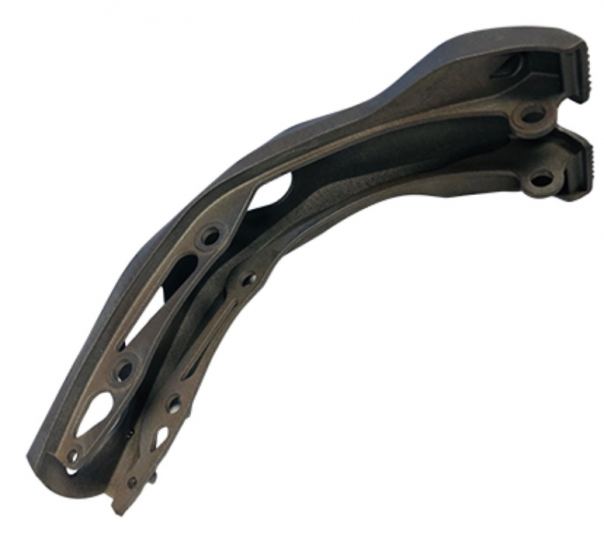
Read more
The Swedish engineering company, Sandvik, was approached by GSD Global to improve e-bike production using titanium additive manufacturing. Together, the companies developed a 3D printed motor node, which they claim is both significantly lighter and cheaper to produce than the traditionally manufactured parts. A major advantage of this new technology is 75% cost reduction and substantial improvements in quality and sustainability as was claimed by GSD Global.
Using additive manufacturing for e-bikes
The titanium components, which hold the electric motor onto the bike frame, are notoriously difficult and costly to manufacture using CNC machining. To overcome this financial challenge, GSD Global, who has partnered with Bosch eBike systems for close to a decade, reached out to Sandvik to explore the possibility of using additive manufacturing to produce the premium e-bike part.
Higher quality and more durable
“Additive manufacturing proved to be the solution GSD Global was looking for as it enabled them to reduce the cost of the part by up to 75%. The printed component, made of Osprey Ti6Al4V powder, is also of a higher quality and is more durable than the original,” Sandvik explained.
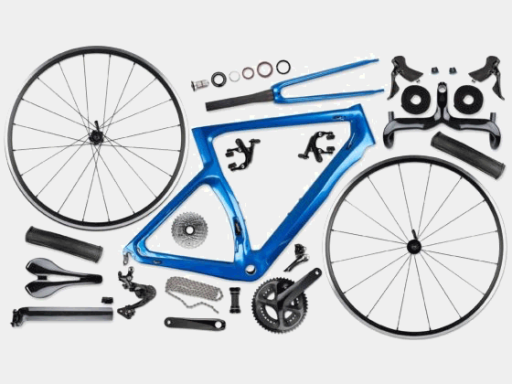
Frames: Core of the bicycle industry
Frames are the core component of any e-bike, the very essence of the product. A frame has differing variables; designs, materials, weights, and so on. With market perceptions shifting product development over the time, what trends can be seen in current frame production? Is the market shift to e-bikes leading to new developments and production location? What is the impact on the supply chain? All this and more, as we explore... the ‘simple’ bicycle frame.
